#David Solans
Text



Merlí: Sapere Aude (1x04)
2K notes
·
View notes
Text


I know these two aren't exactly similar, but for whatever reason they are to me
14 notes
·
View notes
Text

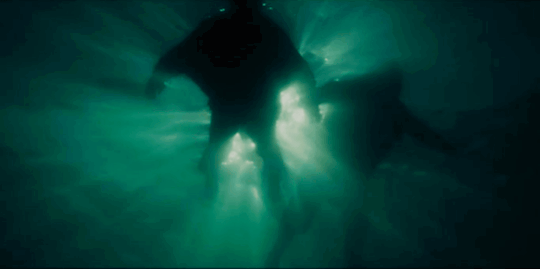








Los herederos de la tierra-> 1x01, Destino @asongofstarkandtargaryen @isadomna Winner of the favourite episode poll.
Ok, the thing is that some weeks ago when the poll ended the distribution of percentage of votes was different, being the pilot episode the winner and now there's a tie between the three episodes we voted , and I'm thinking of doing gifsets for the other two.
#los herederos de la tierra#heirs to the land#1×01#destino#gifset#gifs#aitor luna#michelle jenner#david solans#arturo sancho#arnau estanyol#mar estanyol#hugo llor#bernat estanyol#sibila de fortiá#genís puig#roger puig#críspulo cabezas
14 notes
·
View notes
Photo
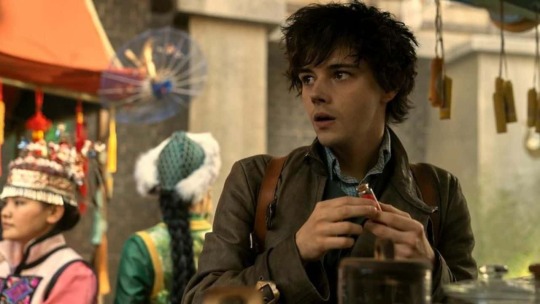




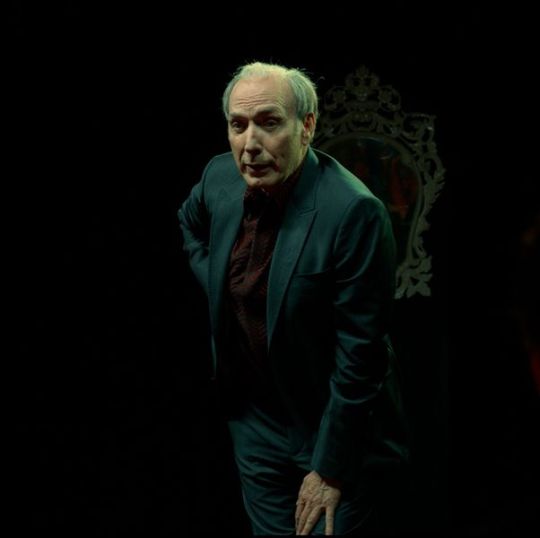
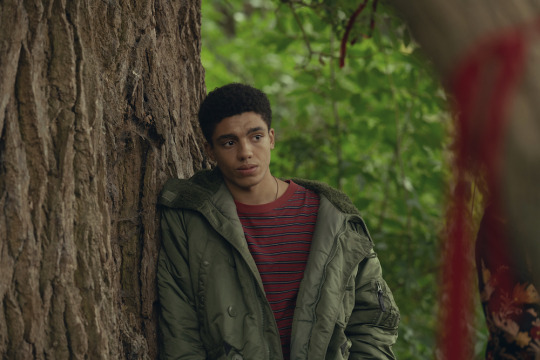


Regular and Recurring LGBTQIA+ Characters in series on TV & Streaming Video
These are characters who have first appeared or been revealed as LGBTQIA+ during the 2022/23 season, or whom I’ve recently learned about or whom I hadn’t mentioned in previous posts of this type (that is, on my old blog). Needless to say, this list is also highly arbitrary and incomplete.
Netflix
Shadow and Bone
Wylan Hendriks (portrayed by Jack Wolfe)
Merlí: Sapere Aude
Pol Rubio (portrayed by Carlos Cuevas)
Bruno Bergeron (portrayed by David Solans)
Ángel (portrayed by Carlos Índriago)
Axel (portrayed by Jordi Coll)
Dino (portrayed by Eusebio Poncela)
Half Bad / The Bastard Son & the Devil Himself
Nathan Byrne (portrayed by Jay Lycurgo)
Gabriel Boutin (portrayd by Emilien Vekemans)
Locke & Key
Brian Rogan (portrayed by Milton Barnes)
Continuing the tradition from my old blog (which has been unceremoniously deleted by tumblr without much of an explanation why) I’m doing daily posts during June to celebrate LGBTQIA+ pride by showcasing openly LGBTQIA+ celebrities and various content about or created by LGBTQIA+ people such as music videos, characters on TV shows, movie trailers, …
#lgbtqia+ pride#pride#TV#shadow and bone#wylan hendriks#jack wolfe#merlí: sapere aude#pol rubio#carlos cuevas#bruno bergeron#david solans#ángel#carlos índriago#axel#jordi coll#dino#eusebio poncela#half bad#the bastard son & the devil himself#nathan byrne#jay lycurgo#gabriel boutin#emilien vekemans#locke & key#brian rogan#milton barnes
14 notes
·
View notes
Text
Ok, tweet para mi misma... ¿por qué estas a punto de empezar a ver una serie mierda que se llama "Smiley" sólo con la intención de que, como sale Carlos Cuevas, puedas tener cierta sensación de fin con repecto a Brunol? JAMÁS TE LO PERDONARE, HECTOR LOZANO... JAMÁS.
#BRUNOL#bruno bergeron#david solans#carlos cuevas#pol rubio#mierda series#Merli#sapere aude#mas mierda series
9 notes
·
View notes
Text
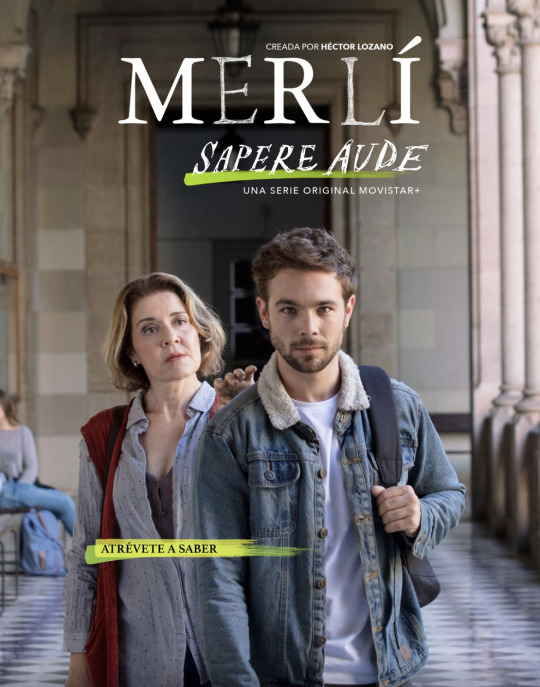
Philosophy and self discovery sprinkled with wonderful story arcs wonderfully portrayed #merlísapereaude #carloscuevas #davidsolans #pablocapuz #mariapujalte #azulfernandez #netflix #lgbt #kirkwoodealeswatches
#lgbtqia#tvseries#merli sapere aude#carlos cuevas#david solans#pablocapuz#mariapujalte#azulfernandez
4 notes
·
View notes
Text
So, I managed to not see the news about David Solans completely leaving Merlí: Sapere Aude back in May, and I'm really sad now. Looking back at the first season, he's absolutely justified in doing so.
The whole show barely gave any development to the side characters, which is made even worse when we know that Brunol is supposed to be endgame. Hector disregarding David's complaints about not getting his just appearance and story, and calling him unprofessional or having a "lack of commitment" is rich considering MSA season one left so much of the relationship between Bruno and Pol to be explored. It's especially bitter when all of the promo shots for the show where of both of them together.
Instead, we get Pol falling in love with entirely someone else, in a season without a single mention of Pol's best friend and soulmate. I was planning to watch season 2, but that's definitely not going to happen now.
17 notes
·
View notes
Text
youtube
I like the little conflict going on here with Xena and Gabrielle in disagreeing on how they would approach the situation with Solan. It was very organic disharmony between them that made a lot of sense and showed how much that the characters are both their own people with their own opinions that differ from each other. Resolved it just as organically too. That’s good writing for you.
Gabrielle’s hero-worship is either lessening or she just realizes that she’s not a go-along-to-get-along kind of gal. Not even with Xena. Just makes the character all the more dynamic as a main character.
Appropriate now she had leading credit which was something Lucy Lawless fought for by the way. She couldn’t understand why she was the only one in the main titles when Renee O’Connor had just as much screen-time as she did all throughout Season 1.
She was very adamant that if they’re keeping Gabrielle around for Season 2 that she got main title credit alongside her. Shows how awesome she is. This one doesn’t get a big head. To this very day she is still extremely humble. Not like the other from the other show who is a sad excuse for a human being.
#xena warrior princess#orphan of war#xena#lucy lawless#gabrielle#renee o'connor#solan#david taylor#xena reaction#evilqk#Youtube
14 notes
·
View notes
Text

Mighty Morphin Power Rangers/ Zeo Lighting Collection
#mighty morphin power rangers#mighty morphin power rangers 2023#power rangers#power rangers Netflix#mighty morphin power rangers 30th anniversary#power rangers 30th anniversary#karan ashley#aisha campbell#johnny yong bosch#adam park#nakia Burrise#Tanya solan#Jason David Frank#tommy oliver#Billy Cranston#David yost#katherine hillard#catherine sutherland#rocky desantos#steve cardenas#jason lee scott#austin st. john#Walter Emmanuel jones#Zack Taylor#thuy trang#trini kwan
15 notes
·
View notes
Text




@asongofstarkandtargaryen Some days ago Elena Rivera won a Ondas 2022 Award of Best Actress for Los Herederos de la tierra, Sequía and Alba.
And there are 5 nominations for LHDLT in the FICAL 2022 (Festival Internacional de Cine de Almería*): LHDLT for Best show, Jordi Frades for Best Showrunner, Elena Rivera for Best actress, and Yon González & David Solans for Best Actor.
I haven't watched Todos Mienten and Des-Conocidas, but the rest nominations are good.
Although a couple of members of the LHDLT cast also have nominations for other show: Sequía, Rodolfo Sancho for Best Actor and Elena Rivera (again) for Best Actress.
Sequía (Drought)/ Crimes Submersos (Sunken crimes) is a spanish-portuguese coproduction that it's a thriller set in Cáceres and Lisboa**.
Synopsis: Due to a period of extreme drought, the Campomediano reservoir is without water, leaving an old submerged village uncovered where two corpses with bullet wounds are found. Inspector Daniela Yanes (Elena Rivera) and journalist Óscar Santos (Miguel Ángel Muñoz) suspect that the crime may be related to the environmental protests that, twenty years earlier, sought to stop the dam's expansion. But when Portuguese inspector Hélder Gomes (Marco D'Almeida) joins the investigation, instigated to find out if one of the bodies belongs to the heir of the Sousa Cardoso - one of the most powerful Portuguese families - the case takes on new contours, involving the also powerful Barbosa family, owner of the concession of the dam. The drought uncovers secrets that have remained hidden for many years and some people related with the case are murderered, like commissar and Daniela's mentor, Javier Ortiz (Juan Gea), that involves the past of the Barbosa family: the head of the family, Luis Barbosa (Guilherme Filipe), his daughter Paula Barbosa (Myriam Gallego), her husband Martín Ruiz (Rodolfo Sancho) and their son Rubén (Nacho Nugo). Daniela and Hélder will find out what happened to João Portela (Diogo Martins) and Joaquim Sousa Cardoso (Luís Ganito), the first victims, and chase the present day killer (Spoiler: Martín is the current day killer)
Bonus track: More etymology!
* Almería: founded in 955 by Abd al-Rahman III of Córdoba as al-Mariyyāt Baŷŷāna (al-Mariyyāt, from Arabic Al-Marāyyāt, the mirror), although other orygins have been proposed as Mariyyā/Mariyyāt, meaning watchtower, Meria al-Bahri, the mirror of the sea, or Madinat Al-Mariya, that would mean the city of Maryan (Maria), but these last hypotheses are considered inaccurate. Baŷŷāna refers to the Andarax river, because of its old name wadi Bayyana. The river mouth of the Andarax is close to the city of Almería.
** Lisboa: from Olissipo, from the Phoenician or Punic language Allis Ubbo (Safe Harbor), that derived later in Arabic as al-Lixbûnâ.
#fical#los herederos de la tierra#heirs to the land#yon gonzález#elena rivera#david solans#jordi frades#festival internacional de cine de almería#LHDLT cast
1 note
·
View note
Text
.
#genuinely want to cry i just can't imagine manuel leaving everything and everyone behind just for nina#they're technically kidnapping lilli and fucking off to paris to play family i'm so fucking upset this absolutely can't happen#merlí s3 without bruno was shit but at least that was because of the actor (david solans)#in un prof there's no reason to make anyone leave#out of everything they could adapt from the original they choose this?#i still believe in simuel endgame but i hoped we could actually see their development better than brunol in merlí#idk maybe i'm overreacting lol i'll calm down i promise#maybe he won't actually leave#we'll see#un professore#tortellini
3 notes
·
View notes
Text
Red Lobster was killed by private equity, not Endless Shrimp

For the rest of May, my bestselling solarpunk utopian novel THE LOST CAUSE (2023) is available as a $2.99, DRM-free ebook!

A decade ago, a hedge fund had an improbable viral comedy hit: a 294-page slide deck explaining why Olive Garden was going out of business, blaming the failure on too many breadsticks and insufficiently salted pasta-water:
https://www.sec.gov/Archives/edgar/data/940944/000092189514002031/ex991dfan14a06297125_091114.pdf
Everyone loved this story. As David Dayen wrote for Salon, it let readers "mock that silly chain restaurant they remember from their childhoods in the suburbs" and laugh at "the silly hedge fund that took the time to write the world’s worst review":
https://www.salon.com/2014/09/17/the_real_olive_garden_scandal_why_greedy_hedge_funders_suddenly_care_so_much_about_breadsticks/
But – as Dayen wrote at the time, the hedge fund that produced that slide deck, Starboard Value, was not motivated by dissatisfaction with bread-sticks. They were "activist investors" (finspeak for "rapacious assholes") with a giant stake in Darden Restaurants, Olive Garden's parent company. They wanted Darden to liquidate all of Olive Garden's real-estate holdings and declare a one-off dividend that would net investors a billion dollars, while literally yanking the floor out from beneath Olive Garden, converting it from owner to tenant, subject to rent-shocks and other nasty surprises.
They wanted to asset-strip the company, in other words ("asset strip" is what they call it in hedge-fund land; the mafia calls it a "bust-out," famous to anyone who watched the twenty-third episode of The Sopranos):
https://en.wikipedia.org/wiki/Bust_Out
Starboard didn't have enough money to force the sale, but they had recently engineered the CEO's ouster. The giant slide-deck making fun of Olive Garden's food was just a PR campaign to help it sell the bust-out by creating a narrative that they were being activists* to save this badly managed disaster of a restaurant chain.
*assholes
Starboard was bent on eviscerating Darden like a couple of entrail-maddened dogs in an elk carcass:
https://web.archive.org/web/20051220005944/http://alumni.media.mit.edu/~solan/dogsinelk/
They had forced Darden to sell off another of its holdings, Red Lobster, to a hedge-fund called Golden Gate Capital. Golden Gate flogged all of Red Lobster's real estate holdings for $2.1 billion the same day, then pissed it all away on dividends to its shareholders, including Starboard. The new landlords, a Real Estate Investment Trust, proceeded to charge so much for rent on those buildings Red Lobster just flogged that the company's net earnings immediately dropped by half.
Dayen ends his piece with these prophetic words:
Olive Garden and Red Lobster may not be destinations for hipster Internet journalists, and they have seen revenue declines amid stagnant middle-class wages and increased competition. But they are still profitable businesses. Thousands of Americans work there. Why should they be bled dry by predatory investors in the name of “shareholder value”? What of the value of worker productivity instead of the financial engineers?
Flash forward a decade. Today, Dayen is editor-in-chief of The American Prospect, one of the best sources of news about private equity looting in the world. Writing for the Prospect, Luke Goldstein picks up Dayen's story, ten years on:
https://prospect.org/economy/2024-05-22-raiding-red-lobster/
It's not pretty. Ten years of being bled out on rents and flipped from one hedge fund to another has killed Red Lobster. It just shuttered 50 restaurants and declared Chapter 11 bankruptcy. Ten years hasn't changed much; the same kind of snark that was deployed at the news of Olive Garden's imminent demise is now being hurled at Red Lobster.
Instead of dunking on free bread-sticks, Red Lobster's grave-dancers are jeering at "Endless Shrimp," a promotional deal that works exactly how it sounds like it would work. Endless Shrimp cost the chain $11m.
Which raises a question: why did Red Lobster make this money-losing offer? Are they just good-hearted slobs? Can't they do math?
Or, you know, was it another hedge-fund, bust-out scam?
Here's a hint. The supplier who provided Red Lobster with all that shrimp is Thai Union. Thai Union also owns Red Lobster. They bought the chain from Golden Gate Capital, last seen in 2014, holding a flash-sale on all of Red Lobster's buildings, pocketing billions, and cutting Red Lobster's earnings in half.
Red Lobster rose to success – 700 restaurants nationwide at its peak – by combining no-frills dining with powerful buying power, which it used to force discounts from seafood suppliers. In response, the seafood industry consolidated through a wave of mergers, turning into a cozy cartel that could resist the buyer power of Red Lobster and other major customers.
This was facilitated by conservation efforts that limited the total volume of biomass that fishers were allowed to extract, and allocated quotas to existing companies and individual fishermen. The costs of complying with this "catch management" system were high, punishingly so for small independents, bearably so for large conglomerates.
Competition from overseas fisheries drove consolidation further, as countries in the global south were blocked from implementing their own conservation efforts. US fisheries merged further, seeking economies of scale that would let them compete, largely by shafting fishermen and other suppliers. Today's Alaskan crab fishery is dominated by a four-company cartel; in the Pacific Northwest, most fish goes through a single intermediary, Pacific Seafood.
These dominant actors entered into illegal collusive arrangements with one another to rig their markets and further immiserate their suppliers, who filed antitrust suits accusing the companies of operating a monopsony (a market with a powerful buyer, akin to a monopoly, which is a market with a powerful seller):
https://www.classaction.org/news/pacific-seafood-under-fire-for-allegedly-fixing-prices-paid-to-dungeness-crabbers-in-pacific-northwest
Golden Gate bought Red Lobster in the midst of these fish wars, promising to right its ship. As Goldstein points out, that's the same promise they made when they bought Payless shoes, just before they destroyed the company and flogged it off to Alden Capital, the hedge fund that bought and destroyed dozens of America's most beloved newspapers:
https://pluralistic.net/2021/10/16/sociopathic-monsters/#all-the-news-thats-fit-to-print
Under Golden Gate's management, Red Lobster saw its staffing levels slashed, so diners endured longer wait times to be seated and served. Then, in 2020, they sold the company to Thai Union, the company's largest supplier (a transaction Goldstein likens to a Walmart buyout of Procter and Gamble).
Thai Union continued to bleed Red Lobster, imposing more cuts and loading it up with more debts financed by yet another private equity giant, Fortress Investment Group. That brings us to today, with Thai Union having moved a gigantic amount of its own product through a failing, debt-loaded subsidiary, even as it lobbies for deregulation of American fisheries, which would let it and its lobbying partners drain American waters of the last of its depleted fish stocks.
Dayen's 2020 must-read book Monopolized describes the way that monopolies proliferate, using the US health care industry as a case-study:
https://pluralistic.net/2021/01/29/fractal-bullshit/#dayenu
After deregulation allowed the pharma sector to consolidate, it acquired pricing power of hospitals, who found themselves gouged to the edge of bankruptcy on drug prices. Hospitals then merged into regional monopolies, which allowed them to resist pharma pricing power – and gouge health insurance companies, who saw the price of routine care explode. So the insurance companies gobbled each other up, too, leaving most of us with two or fewer choices for health insurance – even as insurance prices skyrocketed, and our benefits shrank.
Today, Americans pay more for worse healthcare, which is delivered by health workers who get paid less and work under worse conditions. That's because, lacking a regulator to consolidate patients' interests, and strong unions to consolidate workers' interests, patients and workers are easy pickings for those consolidated links in the health supply-chain.
That's a pretty good model for understanding what's happened to Red Lobster: monopoly power and monopsony power begat more monopolies and monoposonies in the supply chain. Everything that hasn't consolidated is defenseless: diners, restaurant workers, fishermen, and the environment. We're all fucked.
Decent, no-frills family restaurant are good. Great, even. I'm not the world's greatest fan of chain restaurants, but I'm also comfortably middle-class and not struggling to afford to give my family a nice night out at a place with good food, friendly staff and reasonable prices. These places are easy pickings for looters because the people who patronize them have little power in our society – and because those of us with more power are easily tricked into sneering at these places' failures as a kind of comeuppance that's all that's due to tacky joints that serve the working class.

If you'd like an essay-formatted version of this post to read or share, here's a link to it on pluralistic.net, my surveillance-free, ad-free, tracker-free blog:
https://pluralistic.net/2024/05/23/spineless/#invertebrates
#pluralistic#bust-outs#private equity#pe#red lobster#olive garden#endless shrimp#class warfare#debt#looters#thai union group#enshittification#golden gate#monopsony#darden#alden global capital#Fortress Investment Group#food#david dayen#luke goldstein
6K notes
·
View notes
Photo

CINÉ CINÉMA #cineserie #cinécinéma #PHILO Merlí SYNOPSIS La série suivant la vie d'un professeur de philosophie nommé Merlí Bergeron qui tente d'enseigner à ses élèves de lycée de manière non conventionnelle. Chaque épisode de la série a pour thème et porte le nom d'un philosophe connu, le premier épisode étant par exception nommé pour les péripatéticiens. BANDE ANNONCE https://youtu.be/hQj3gBgLihA DÉTAILS Depuis 2015 / 50 min / Drame Titre original : Merlí Créée par Héctor Lozano Avec Francesc Orella, David Solans, Pere Ponce Nationalité Espagne CRITIQUE Dans la série catalane Merlí , un professeur aux méthodes atypiques vient en aide aux élèves grâce à la philosophie. Comme dans La Faute à Rousseau, qui en est l’adaptation française. C’est quoi, Merlí ? Merlí Bergeron (Francesc Orella) arrive en tant que professeur de philosophie remplaçant dans un lycée de Barcelone. Divorcé, contraint d’habiter chez sa mère, il se retrouve à enseigner dans la classe de son fils Bruno (David Solans) avec qui il est en froid. Et Merlí a des méthodes d’enseignement atypiques qui ne laissent personne indifférent : ses collègues et sa hiérarchie lui sont hostiles et les parents sont perplexes, mais ses élèves l’adorent. Au lieu des cours classiques, il les pousse à développer leur esprit critique et à travers la pensée des grands philosophes, il les aide à surmonter leurs problèmes personnels. Au lieu de suivre le programme ou les directives pédagogiques, Merlí est un enseignant passionné et provocateur qui se la joue Cercle des poètes disparus : à partir de concepts philosophiques, il discute avec les lycéens qu’il surnomme les péripatéticiens (en référence aux élèves d’Aristote), les incite à penser par eux-mêmes, à tout remettre en question y compris l’autorité, et il les pousse à appliquer les grands courants de pensée à la vie réelle pour résoudre leurs problèmes personnels. L’une des particularités de Merlí vient du titre des épisodes, portant tous le nom d’un philosophe (Platon, Machiavel, Schopenhauer, Foucault, Hannah Arendt, Guy Debord) dont la pensée sert d’épine dorsale à l’intrigue principale. Un concept comme la mort de Dieu, le libre-arbitre ou la dialect https://www.instagram.com/p/CiPdYzms2Aj/?igshid=NGJjMDIxMWI=
2 notes
·
View notes
Video
youtube
The Longest Night | Official Trailer | Netflix
Star: Fran Berenguer / Alberto Ammann / David Solans
#the longest night#the longest night (2022)#la noche más larga#drama series#crime series#trailer#netflix
2 notes
·
View notes

